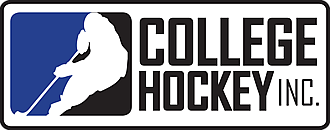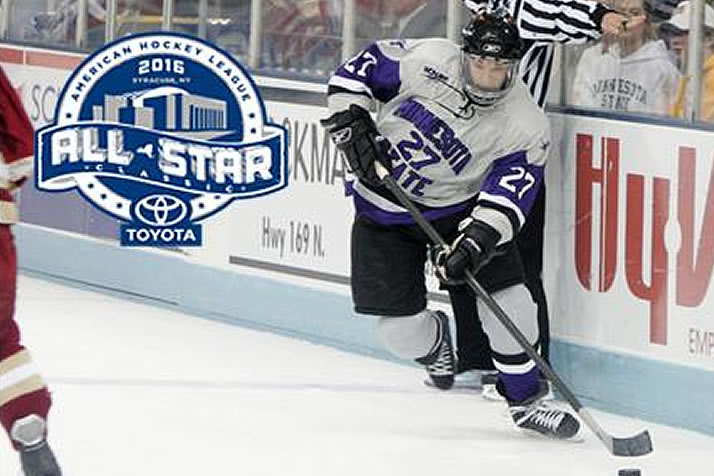


Sixteen former NCAA hockey players have been named to the rosters for the 2016 AHL All-Star Classic, set for Jan. 31 and Feb. 1 in Syracuse, N.Y.
Fourteen schools have alumni in the event, led by Massachusetts and Miami with two each.
Each of the AHL’s four divisions will be represented by 13 players: seven forwards, four defensemen and two goaltenders. Rosters were determined by committees of AHL coaches, and all 30 AHL teams are represented by at least one All-Star. Each division has at least two NCAA alums on its roster, led by the Pacific Division with six:
| Atlantic Division | ||
| Chris Bourque (F) | Hershey | Boston University |
| Joe Whitney (F) | Bridgeport | Boston College |
| North Division | ||
| Yann Danis (G) | Albany | Brown |
| Michael Kostka (D) | Binghamton | Massachusetts |
| Matt Taormina (D) | Syracuse | Providence |
| Mike Sislo (F) | Albany | New Hampshire |
| Central Division | ||
| Connor Hellebuyck (G) | Manitoba | UMass Lowell |
| Gustav Olofsson (D) | Iowa | Colorado College |
| Pat Cannone (F) | Chicago | Miami |
| Jeff Hoggan (F) | Grand Rapids | Omaha |
| Pacific Division | ||
| Brad Hunt (D) | Bakersfield | Bemidji State |
| Vincent LoVerde (D) | Ontario | Miami |
| Brandon Montour (D) | San Diego | Massachusetts |
| Derek Grant (F) | Stockton | Michigan State |
| Michael Mersch (F) | Ontario | Wisconsin |
| Travis Morin (F) | Texas | Minnesota State |
The 2016 AHL All-Star Skills Competition on Jan. 31 (8 p.m. ET) will keep its traditional format, with All-Stars from the Eastern Conference squaring off against All-Stars from the Western Conference in seven skills events.
The 2016 AHL All-Star Challenge will take place on the evening of Feb. 1 (7 p.m. ET); instead of a traditional 60-minute game, the AHL’s All-Stars will be divided into four teams, one representing each of the league’s divisions (Atlantic, North, Central, Pacific). The teams will then play a round-robin tournament featuring six games of nine minutes each; the first half of each game will be played at 4-on-4, and the second half at 3-on-3. The two teams with the best records at the end of the round-robin tournament will face off for the championship, a six-minute game played at 3-on-3.